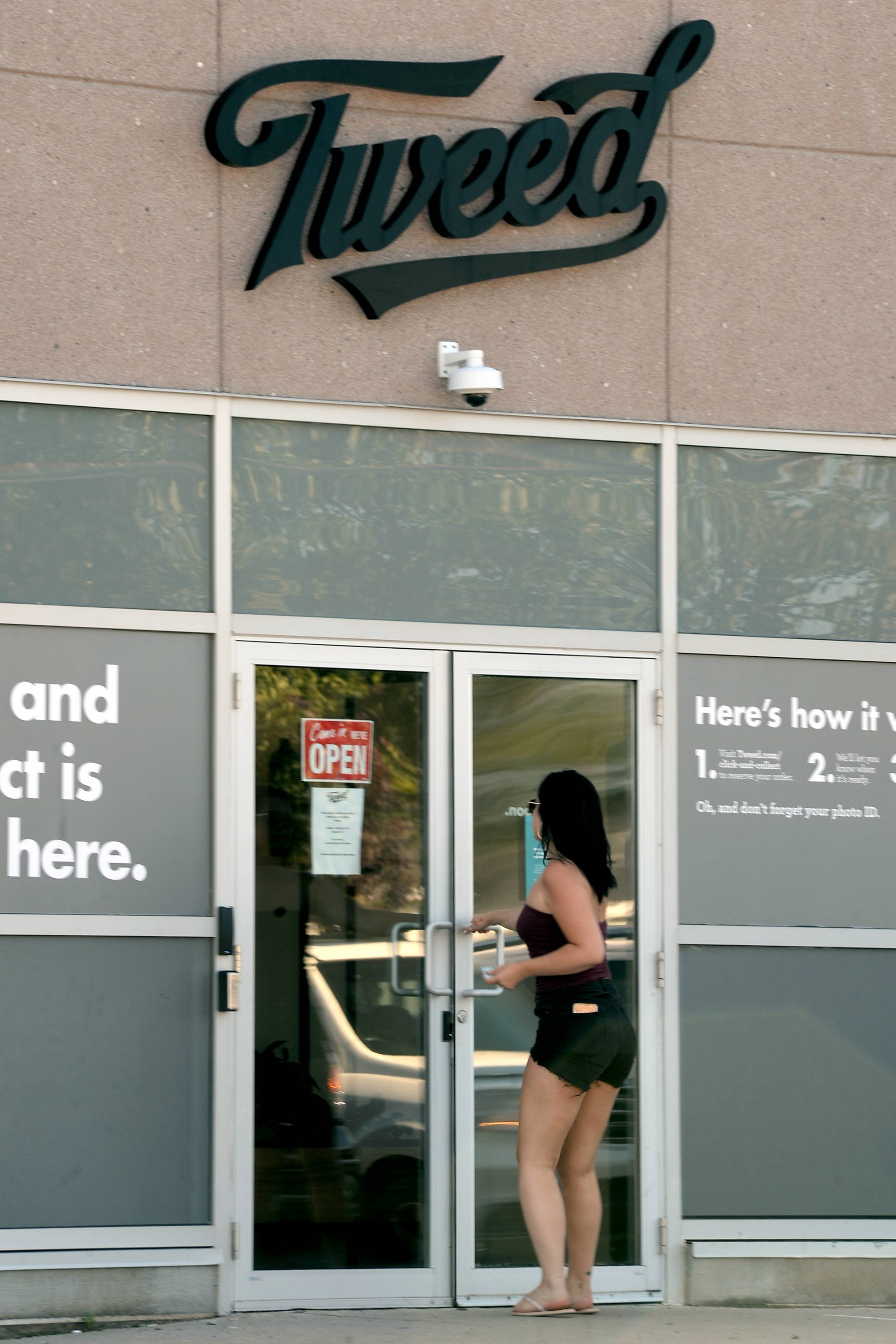You are here
Home 🌿 Recreational Marijuana News 🌿 Survey aims to find out what makes Newfoundland and Labrador cannabis purchasers tick 🌿Survey aims to find out what makes Newfoundland and Labrador cannabis purchasers tick

An assistant professor of pharmacy in St. John’s hopes a survey she’s conducting on cannabis usage in Newfoundland and Labrador will shine a light on what influences the choices purchasers make when they buy product.
And a Newfoundland-born professor in Virginia says he already has a good idea what factors are keeping the black market afloat in Canada.
Memorial University’s Jennifer Donnan is leading the survey, which is backed by the Canadian Institute for Health Research, and says they’ve already received a great deal of information since starting interviews a month ago.

Jennifer Donnan is a professor of pharmacy at Memorial University in St. John’s. — Contributed
“We’ve got a good amount of data, but there are gaps still,” she said. “I don’t have a whole lot of people from rural Newfoundland and Labrador.”
Donnan said they are also hoping to get more older people into the mix.
“I’m really just trying to dig down and understand what influences choices for people purchasing cannabis,” she said.
“People are thinking about quality… how is it cured, how is it dried, what does it look like, the smell. Those are important quality aspects for some people.” — Jennifer Donnan
Price and availability are important factors, but plenty of other considerations play into it.
“There’s definitely more than just price,” she said. “People are thinking about quality… how is it cured, how is it dried, what does it look like, the smell. Those are important quality aspects for some people.”
Others want assurances about pesticide use, as well as how well quality and percentages are regulated.
Market in flux
“We know that the majority of cannabis sold in Canada is still from the black market,” Donnan noted. “That is one thing that’s been established in numerous national cannabis surveys.”
Paul Seaborn, an assistant professor at the University of Virginia’s McIntyre School of Commerce, has some insight into why that is.
Seaborn, who’s originally from Newfoundland, has looked at how Colorado and Washington handled sales after cannabis was legalized in those states in 2012.
"What you’re seeing throughout Canada right now is the availability of product is not at the level it would be in Colorado in terms of how close is your nearest dispensary and ... the range of product. I think that’s the key factor that’s allowing the black market to have a much bigger role.” — Paul Seaborn
Having only legalized it in 2016, he says, Canada is still finding its footing.
“This is something that changes over time and evolves with the market, and I think what you’re seeing throughout Canada right now is the availability of product is not at the level it would be in Colorado in terms of how close is your nearest dispensary and what’s the range of product I can buy when I get there,” he said in a phone interview. “So I think that’s the key factor that’s allowing the black market to have a much bigger role.”
In Colorado, for example, there was no limitation placed on the number of outlets that could sell it in the beginning.
As well, the range of products was developed quickly in the U.S. states, whereas Canada waited a full year before legalizing edibles.
“I’m not going to drive by four dispensaries that have a good selection to go buy something that’s a little questionable or dangerous just to save a couple of bucks,” Seaborn said.
Donnan acknowledges availability is likely a significant factor in less populous regions.
“I still don’t have a good sense of what impacts choices in rural areas, but certainly it’s not as accessible in some regions, and so we know that’s an issue,” she said.
The Canadian market does seem to be going through growing pains, as witnessed in March when the national producer Canopy Growth laid off 500 workers and shut down two of its largest plants in British Columbia.
The company said it was still trying to “right size” its operations to fit the market.
Seaborn believes that will eventually happen.
“I would think these things will change over time, and eventually it will become more segmented over time,” he said.
For more information, or to participate in Donnan’s focus group, contact her team at 709-864-3587, or email caneval@mun.ca. You need to have purchased cannabis in the past year and be at least 19. Retailers and non-residents are not eligible. Participants will receive a $20 gift card.
420 Intel is Your Source for Marijuana News
420 Intel Canada is your leading news source for the Canadian cannabis industry. Get the latest updates on Canadian cannabis stocks and developments on how Canada continues to be a major player in the worldwide recreational and medical cannabis industry.
420 Intel Canada is the Canadian Industry news outlet that will keep you updated on how these Canadian developments in recreational and medical marijuana will impact the country and the world. Our commitment is to bring you the most important cannabis news stories from across Canada every day of the week.
Marijuana industry news is a constant endeavor with new developments each day. For marijuana news across the True North, 420 Intel Canada promises to bring you quality, Canadian, cannabis industry news.
You can get 420 Intel news delivered directly to your inbox by signing up for our daily marijuana news, ensuring you’re always kept up to date on the ever-changing cannabis industry. To stay even better informed about marijuana legalization news follow us on Twitter, Facebook and LinkedIn.




